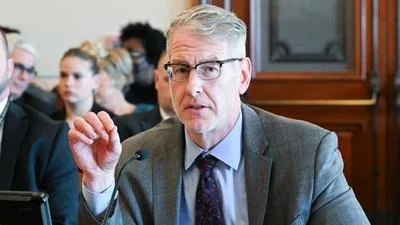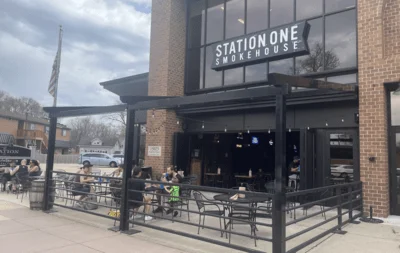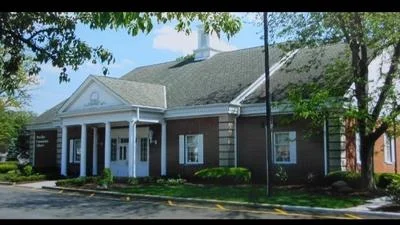The Will County Legislative and Policy Committee met` Feb. 14 to negotiate budget bills.
Here are the meeting's minutes, as provided by the committee:
WILL COUNTY LEGISLATIVE & POLICY COMMITTEE
MEETING MINUTES
302 N. CHICAGO ST. JOLIET, IL 60432
WILL COUNTY LEGISLATIVE & POLICY COMMITTEE MEETING MINUTES
302 N. CHICAGO ST. JOLIET, IL 60432
FEBRUARY 14, 2017
County Board Committee Room Regular Meeting 9:00 AM
I. CALL TO ORDER / ROLL CALL
Chair Suzanne Hart called the meeting to order at 9:00 AM
Attendee Name Title Status Arrived Suzanne Hart Chair Present Ray Tuminello Vice Chair Present Kenneth E. Harris Member Absent Tim Kraulidis Member Present Tyler Marcum Member Present Donald A. Moran Member Present Judy Ogalla Member Present Annette Parker Member Present Lauren Staley-Ferry Member Present
Also Present: J. Moustis; H. Brooks; Brent Hassert and M. Johannsen
Present from State's Attorney Office: M. Tatroe
II. PLEDGE OF ALLEGIANCE TO THE FLAG
Mrs. Parker led the Pledge of Allegiance to the Flag.
III. APPROVAL OF MINUTES
1. WC Legislative & Policy Committee - Regular Meeting - Jan 10, 2017 9:00 AM
RESULT: APPROVED [UNANIMOUS] MOVER: Ray Tuminello, Vice Chair SECONDER: Tyler Marcum, Member AYES: Hart, Tuminello, Kraulidis, Marcum, Moran, Ogalla, Parker, Staley-Ferry ABSENT: Harris
IV. MISCELLANEOUS LEGISLATIVE REPORTS
Teleconference with Jim Smith and Brett Garson of Smith Dawson & Associates began at 9:15 a.m.
Mr. Garson advised they are starting to move things along. The staff are waiting on secretary nominations to be approved by the Senate. My understanding is this week about 6 or 7 other secretary cabinet nominees will be voted on and approved. Then the other lower senate confirmed appointees will be able to be put into place and those agencies will be able to start implementing executive and policy procedures. Congress continues to work on the best plan for repealing/replacing Obama care. There is a lot of disagreement on the best approach to replacement. Congress continues to roll back several regulations that passed in the last 7 months of the Obama administration under the Congressional Review Act. The House has passed approximately 10 regulations. Those will then be sent on to the Senate who can pass them by a simple majority. A lot of these regulations will not be an issue and then they will be sent to the White House for signature by President Trump.
Mr. Garson stated I am aware of only 1 Congressional Review Act regulation and that has to do with a mining regulation that falls under the FCC. The Senate has very little time to deal with other things outside of the nominees. We started the process of making problematic requests for FY2018. That process is carried on through each personal office in Congress. They request from constituents program levels; what makes sense in the current fiscal year and the future FY2018 and a look at where budgets are going requesting level funding makes the most sense. Programs such as CDBG, Emergency Management Program grant that you utilize annually are what we make requests on and ask for level funding because it is going to be a tight budget.
Mr. Garson stated I understand that you reviewed FY2018 Will County Federal Agenda. The focus continues to be on the infrastructure and your important place in the region, the state and country. We look at both surface transportation and air transportation. After that there is regional priorities which includes the opioids epidemic, agricultural exports, the MPO rule that we were opposed to. We also talk about programs important to the county such as the Port Security Grant Program or Hazardous Materials Emergency Preparedness Grant Program that you are also receiving funding for. We finish the agenda with county projects including some of the top priorities in the infrastructure investments for the county which included the Laraway Road Corridor improvement and some justice related projects that are integral to the county and its agenda moving forward.
Mr. Moustis stated Mr. Moran has done a really good job on that Aviation Sub- committee in making sure the remote tower project continues to move forward. Is there anything more we should be doing that will help the process of bringing the tower to Lewis Airport?
Mr. Garson replied we want to put together a plan for staggered visits this year. The FAA authorization lapses September 30, 2017. The House is starting full hearings on the reauthorization. I am fairly confident that language supporting remote tower program has the support of both the House and Senate. When we decide on a date for some of the board members to come out to Washington, we will want to meet with the right committee staff and personal offices to discuss this is a priority to Will County. We can put together a letter specifically talking about this priority. I am happy to put the language together and send it over for your approval. These are the things we would start to do in early spring, late winter.
Mr. Garson advised we are all set for their visit next Friday but it has to be a very small group.
Mr. Tuminello asked if there is any discussion regarding having the deduction capped for the municipal bonds. I know the tax treatment was a big deal.
Mr. Garson replied yes, it is a real concern. People who don't think it is on the table are wrong because it is. If they do anything to the tax treatment of bonds, they are going to cap it, they won't totally eliminate the exemption. Most of these investors are wealthy individuals who purchase these bonds so if it is getting capped, they will have to pay a tax on a portion of the interest they receive from those bonds. It could potentially raise the cost. The major trade associations are raising this to the highest level. The US Conference of Mayors before President Trump was sworn in and met with him and this is critical to the United States. It is a big tax bill to the federal government. They get approximately $55 billion annually that is a benefit because the bonds are tax exempt. Hopefully, the rank and file members are talking to leadership in the House Ways and Means Senate Finance are really looking at this. It is still a real concern.
Mr. Tuminello stated it is the same thing with the on line sales tax collection. That is billions of dollars that are going on the wayside as well. My concern as the county going forward I didn't want to hamper any small business. A $10 million cap is an adequate amount.
ASA Tatroe arrived at this juncture.
The telephone conference call ended at 9:15 a.m.
V. OLD BUSINESS
1. Establishing Will County 2017 State Legislative Agenda & Priorities
(Discussion) Mrs. Hart stated there are other bills that have come out in the meantime of our 2017 Legislative Agenda. They won't be put on for our priorities but we will be aware of HB 2613 by Rep. Margo McDermed which is the drainage district revenue.
Brent Hassert stated I spoke with her regarding this bill where this will at least hold tax on the farm. Rep. McDermed is in contact with IDOT who won't pay additional fees.
Ms. Novak stated the bill Rep. McDermed is putting through would be something that belongs in the current airport bill that we have, the tax collection bill that we have had.
Mr. Moustis stated this is regarding drainage districts and is to replace property tax leased hold by the state. It gives the lease holders additional money that is charged to the lease that replace real estate taxes. They are then distributed to the various taxing bodies. Drainage districts are based on fees. Drainage districts currently do not get real estate taxes, they get fees so what fees are drainage districts not collecting that they would have collected before.
Mrs. Ogalla stated any property that has been purchased by the state there is no drainage district fee collected for it. This has been going on since 2002. The properties that are within the drainage area are assessed so much per acre to help pay in. That is how stormwater moves through. The property owner pays the fee.
Ms. Novak stated some drainage districts are on the bill which would mean they have a taxing body number. If that is the case they would get a portion of the dollars we collect.
Mrs. Ogalla advised Black Walnut Creek and Union Drainage District 1 is definitely in the airport footprint. There could be up to 2.
Ms. Novak stated some of the houses the state purchased and tore down we get nothing on. The only ones we get something on are the ones still standing and are rented. That is one letter I send to the department. Then the other one is farm lease holds. After I send them the letter that says this is the amount that you are going to pay, the treasurer then takes all the taxing districts that have a levy and are within that and they distribute the money. If there was a drainage district in that it would be a taxing body and it would get money.
Mrs. Ogalla advised they don't receive any money. When Halvorson and Duggan put this together they only negotiated for the lease dollars to go to the taxes. The drainage district is a fee and is on our property tax bill but it is a fee so they refuse to pay it. We have no other way of maintaining our stormwater without those dollars. The majority of the land in this drainage district has been purchased by the state.
Mr. Hassert suggested he speak with Rep. McDermed to find out the rationale behind the bill, why she introduced it, who asked her to introduce it and get a little history and find out what she is trying to accomplish.
Mrs. Ogalla said the lease holder does not pay the property tax bill. The lease dollars are collected by the state and then they are redistributed.
Mrs. Hart advised this is HB 2613.
Mrs. Hart stated one of our major priorities is the water testing for the quarry.
Mr. Hassert advised Senator McAsey introduced a bill who stated the administration was inquiring about the bill. I went to the governor's office and they were pro our bill. They said they were going to introduce legislation that week and will probably use Rep. McDermed for the sponsor. Rep. McDermed is the sponsor for HB 3056. The governor's office introduced it through her and we have our bill which is more detailed and Mr. Olson just advised there is a third bill.
Mr. Olson stated that Senator Hastings introduced SB1355. It has nothing to do with our stuff but has to do with CCDD sites and allowing them to close and use the site for various purposes. It is not very detailed. I didn't see anything in there about making ground water safe before you close it or turn it over to someone else. We need to watch that bill. The synopsis was read by Mr. Olson at this time. We need to make sure that they don't get to close without proving that they are not doing anything to harm the environment.
Mr. Olson stated Senator McAsey's bill does have the hillside filling in addition to the ground water. The other item I asked for in the legislative priorities is the stormwater monitoring because a lot of these sites have not gotten their inward gradient so the water stays in and doesn't go out. When it gets above that we absolutely have to have groundwater monitoring. In the meantime we need to find out what is going on at the site and the only way we probably can know for sure is doing the stormwater monitoring is much more detailed, much more relevant to a CCDD site. We need to make sure this is added.
Mr. Moustis asked ASA Tatroe if we know how the Attorney General's lawsuit is going.
ASA Tatroe replied it is both State's Attorney and Attorney General. We filed in the 3rd District, they filed in the 1st. The lawsuits were combined in the 3rd District. Briefs have been filed. We filed our brief 2 to 3 weeks ago. The Attorney General asked for more time to file theirs. Once they get their final brief which is their reply brief. We filed our initial brief, the opposition filed their answer to the Illinois Pollution Control Board and then we filed our reply briefs. As soon as that final reply brief is filed and perhaps oral arguments then we may see what happens.
Mr. Moustis clarified our lawsuit is for them to require more monitoring.
ASA Tatroe replied it is. We are in the Appellate Court and we are hoping that they will say the Illinois Pollution Control Board has to go back and provide for ground water monitoring. It is a very high standard that we have to overcome. In the meantime, legislation would be a great thing.
Mr. Hassert stated that the former administration did not appoint an existing member to the Pollution Control Board. They had 2 members that were conflicted on the underlying issue so we could never get any decisions made until Governor Rauner was appointed. They appointed somebody and they just closed the docket. We went through the JCAR process to get an open docket again for this rule making. We have been dealing with this for a long time and to have the governor to come on board obviously is an important part of it. It is still going to be a fight but it is a big step forward.
Mr. Moustis stated a lot of shell bills get filed that are sometimes difficult to keep an eye on. I know some of those shell bills involve issues with counties. How are you able to track those?
Mr. Hassert replied there are about 5 to 6,000 bills introduced but only about 300 become law. The shell bills are always introduced by each caucus and individual members. Very seldom do you see any action taken on shell bills unless it is drafted from the leadership. We have used shell bills for the county for us to discuss and if we have a vehicle to get it to the position so we can move it to legislation. We always look for it because you have to watch the amendments in the end of session that will go onto a shell bill which is where the timing and amendments are. We track them all and we usually know if something is going to rise to the top. The Senate has been doing this budget and they introduced 12 bills. One of the bills was SB009 which was 500 pages and in that bill they stuck our language back in for the pollution control devices on the refineries. We caught that and went to all 4 caucuses and explained it to them. When they are drafting their large type bills and are throwing different types of taxes, changes or something to the tax code everybody comes to the table and people start inserting things. Obviously this was inserted and probably no one else understands this type of legislation other than us who has been following it. This is a priority of the Illinois Manufacturing Association of Petroleum Refiners. They had someone put it in SB009, amendment #2. We caught it and went to the caucuses and explained what devastation this would cause to our county, our school districts and other taxing bodies. We are hoping this will be removed because SB009 is not going anywhere as it is a huge tax increase for awhile. We have been very fortunate to get it killed in the House all the time. That is what you have to watch for when they sneak something like this in to a larger bill. It does happen. This has been our fight for the last 5-6 years and have always prevailed but we know they are still out there trying to get this done. We have 2 refineries and we have to be cautious of this one. They are very persistent.
Mrs. Hart stated as we weigh out the success we had with Julie Curry and Brent Hassert we also have to remember that it is not just the bills we get through but also the bills they are blocking right here. This one is gigantic. There are 4 refineries in Illinois and we have 2.
RESULT: MOVED FORWARD [UNANIMOUS] Next: 2/16/2017 9:30 AM TO: Will County Board MOVER: Donald A. Moran, Member SECONDER: Ray Tuminello, Vice Chair AYES: Hart, Tuminello, Kraulidis, Marcum, Moran, Ogalla, Parker, Staley-Ferry ABSENT: Harris
2. Establishing FY2018 Federal Legislative Agenda & Priorities
(Nick Palmer) Mr. Palmer asked if there were any questions. This is not in final form right now.
Mr. Fricilone stated $1. 3 million was our cost for the study.
Mr. Palmer replied that is a combination of CDM Smith, Ann Schneider and her team and money from JADA. All that together totals approximately $1.3 million.
RESULT: MOVED FORWARD [UNANIMOUS] Next: 2/16/2017 9:30 AM TO: Will County Board MOVER: Donald A. Moran, Member SECONDER: Tyler Marcum, Member AYES: Hart, Tuminello, Kraulidis, Marcum, Moran, Ogalla, Parker, Staley-Ferry ABSENT: Harris
VI. OTHER OLD BUSINESS
VII. NEW BUSINESS
1. State's Attorney Legislation
(James Glasgow) Ms. Freitag stated Ken Grey advised Mr. Glasgow had an emergency and requested this be moved to next month.
RESULT: CONTINUED Next: 3/14/2017 9:00 AM TO: Will County Board
2. Senate Bill 0003 Local Government Consolidation
(Discussion) Mrs. Hart advised Kelly Murray stated the county associations were wanting us to weigh in on SB0063.
Mr. Hassert stated this was regarding consolidation. This was an easy vote for everyone to take. It sounds really good on the pretenses. It was an initiative of DuPage County on a trial basis and then it was expanded statewide. This has always been a priority of the governor's office. The common denominator is that we have more local government entities in the State of Illinois than any other state in the country. You may see some consolidation. I don't know how far this will progress.
Mr. Moustis stated bills like this are not really getting to the core. They want to talk about townships where you will not eliminate any costs because when they are disbanded, the counties has to pick up the costs of what townships are doing. They don't talk about consolidating school districts, park districts and fire protection districts. In a substantive way, this is meaningless. We should be aware of it because some of what they are suggesting is going to put a lot of costs on counties especially in relation to townships.
Mrs. Hart advised that is what they are watching.
Mr. Hassert stated he doubted you will get rid of township government. Consolidation of schools is another one, try to consolidate a smaller school into a larger one and you find that the cost of bringing the teachers up from the smaller one to the larger one is absurd.
3. Pollution Control Devices
(Rhonda Novak) Ms. Novak reviewed the flyer which was included in the packet and redistributed in color at the meeting. She stated at the upper left corner is a picture of a refinery. Right below that is a picture of a unit in a refinery and the processes that happen within that unit. Up in the right hand corner a pollution control device as we consider it which is a device that is attached or pertinent to the unit site specific for the purpose of eliminating any air or water pollution. Items such as when the flame goes off it means there is a problem in the unit. A pollution control device, a scrubber which keeps the particles from going into the air, polluting the air. Those things are clearly pollution control devices that are pertinent to the unit.
Ms. Novak advised we are concerned about the expansion of the language because it appears what they are trying to do is enlarge the definition and create an opening for certifying pollution control equipment on something such as cleaner gas. We know the refineries make the low sulfur diesel gas and they sell it but they make cleaner gas so you can put it in the car. We want to make sure that the expansion of the definition doesn't come to the fact that now because you are making cleaner gas and you have this equipment attached to your unit that now those are pollution control devices. That chips away at the value of the refinery. It is not only refineries. The only item not included in pollution control are wind devices, cooling ponds and ethanol production facilities. This would affect our 2 refineries as well as our nuclear plant which is Braidwood and any coal plants that we have because they have the devices as well. Also, any of the gas turbine or the combined cycle gas turbine which we will probably see one of those here in the next few years.
Ms. Novak stated on the Pollution Control Equipment sheet she provided it states what is coming in for taxes which is $77 million. The facilities we have that could potentially have an expansion of pollution control. Ethanol facilities are exempted from this because they make ethanol and that has to be clean. They don't want to exempt such as low sulfur diesel gas which is basically the same concept. You are making something that is cleaner for the air and water. We don't want the expansion of the definition of a device. We don't want them to change how a device is to be valued either. We don't want them valued at salvage value. We want them valued at 33 1/3rd of market just like everything else is.
Ms. Novak advised we tried to work with them on language and they want nothing to do with that. We proposed language to them to say that if the equipment is part of the process for a cleaner gas and it is a sellable bi-product exempt them out. They don't want to do that. They want to add additional pollution control equipment.
Mr. Hassert stated we have met with these people to try to identify what they classify a pollution control device on a locality. We want to make sure that it is a pollution control device that is affecting the local geographic area that it is in. The one sentence they added is "in compliance with federal or state requirements enacted or promulgated to eliminate, prevent or reduce air pollution and water pollution." Our interpretation of that one sentence means that if they develop a cleaner gas or diesel fuel would be included as a pollution control device. The whole process would then end up turning into scrap value which would take the percentage we generate in taxes down to basically nothing. These guys are looking for ways to reduce costs at their facilities because we have lower gas prices.
Ms. Novak advised the real problem with the bill is all of our special use properties we have agreements on so we negotiate a multi-year agreement. In our agreements it is very clear that we don't value pollution control. Since we negotiated agreements in Will County, we don't touch those pollution control devices. In fact, most of our facilities, Exxon Mobil, PDV, Braidwood and NRG don't even file for pollution control devices because we don't value them. Typically what happens is they file for them through the EPA, go to the Department of Revenue and we get a certificate saying did you value this scrubber and if you did take the value off because they then pay a pollution control tax. This could be really bad because it could eliminate our ability to negotiate agreements. We are the only county who has agreements on all of our big properties. If they are able to file pollution control devices and they say they are codifying something but are really expanding then we end giving them another avenue to appeal or discuss what valuation is. Now we have given them the ability to go through court and get an opinion on value.
Mr. Tuminello verified with Ms. Novak that she does not value the pollution control devices that are on there now.
Ms. Novak replied yes.
Mr. Hassert stated this all started down south when one of the refineries did a major expansion and the State of Illinois through the EPA Pollution Control Board, I think made a mistake by giving them exemptions on the process. Once they figured this out they want to codify this into state law. If you have a scrubber on your facility at Citgo Refinery, as a basic pollution control device they could if they went through normal process and Will County doesn't do it that way. They go through the EPA and say we are cleaning the air, this should be determined as scrap value so they would certify that, the Department of Revenue would come back and we would assess it as scrap value. Being that we have negotiated processes in Will County, we automatically say you are telling us that the scrubber is a pollution control device, we are taking your word, and it is not valued. The problem with this legislation, it brings into the process and the process could be because you are making a cleaner product you are telling the whole process is a pollution control device.
Mr. Hassert advised we completely lose the ability to do the assessment on the value of the plant because the process is now cleaning something better for the environment throughout a larger geographical area.
Ms. Novak stated this all comes from the Wood River facility. At Wood River the school district had the attorney, Stuart Witt, and they could not come to an agreement and because when you file for pollution control equipment or devices you have to submit your financials. What happened was the law firm was able to FOIA the financials on Wood River through the EPA and the Department of Revenue through pollution control. They decided we are going to stop that and we are going to value these things at salvage value instead of 33 1/3rd of their costs or sales or anything else so we won't have their financials on hand for somebody to FOIA to try to come up with a value.
Mr. Hassert stated this is in SB009, Amendment #2. It is part of the Senate negotiated budget bills. This is where all the taxes are included and is a huge tax bill. We went to the appropriation person in each caucus and nobody understands this. Leader Radogno and Leader Durkin who represents your area and the 2 school districts would be hugely impacted understand it.
Mr. Moustis stated his concern is there are only 4 refineries in Illinois and therefore most legislators may not necessarily take this up as a priority for them. We should all be reaching out to the Will County legislators. Any taxing body that is affected by this should be contacting our legislators.
Mr. Hassert stated we having 2 leaders that are affected by this helps and we have been very fortunate that since we have been dealing with this for about 6 years in making sure this doesn't move forward. People do understand it.
Drainage District
Ms. Novak stated the drainage district that Rep. Margo McDermed is presenting is in the state property, airport bill. She is adding that in the bill saying that from 2017 forward she wants the drainage fee to be collected. The original airport bill as it was done said that the supervisor of assessments was to certify to the state the 2002 lease hold taxes on any property that the state was leasing whether it be residence or on the farm properties. If they are renting the property we get a list of those and I certify the 2002 taxes. The 2002 taxes on those properties were not lease hold taxes so the word lease hold doesn't belong there and we for this many years just certify the taxes. The farm land leases we value those on farm land just like we value any farm land based on productivity. This is how we do this and from 2002 forward we have interpreted the bill which ends in 2020. Rep. McDermed Is making an amendment to that bill and I think eventually a decision or discussion would have to be made as to do we want to discuss any other amendments in that bill because it is 2017. 2002 was 15 years ago and there are properties that didn't have taxes in 2002. If she is going to move forward and amend something we should be cognizant of the fact that the bill 15 years later is perfectly written.
VIII. OTHER NEW BUSINESS
None.
IX. EXECUTIVE SESSION
None.
X. PUBLIC COMMENT
None.
XI. CHAIRMAN'S REPORT / ANNOUNCEMENTS
None.
XII. ADJOURNMENT
1. Motion to Adjourn at 10:12 AM
RESULT: APPROVED [UNANIMOUS] MOVER: Donald A. Moran, Member SECONDER: Ray Tuminello, Vice Chair AYES: Hart, Tuminello, Kraulidis, Marcum, Moran, Ogalla, Parker, Staley-Ferry ABSENT: Harris
NEXT MEETING - MARCH 14, 2017
FOR INFO RE: ANY STATE BILLS PLEASE REFER TO: www.ilga.gov






 Alerts Sign-up
Alerts Sign-up